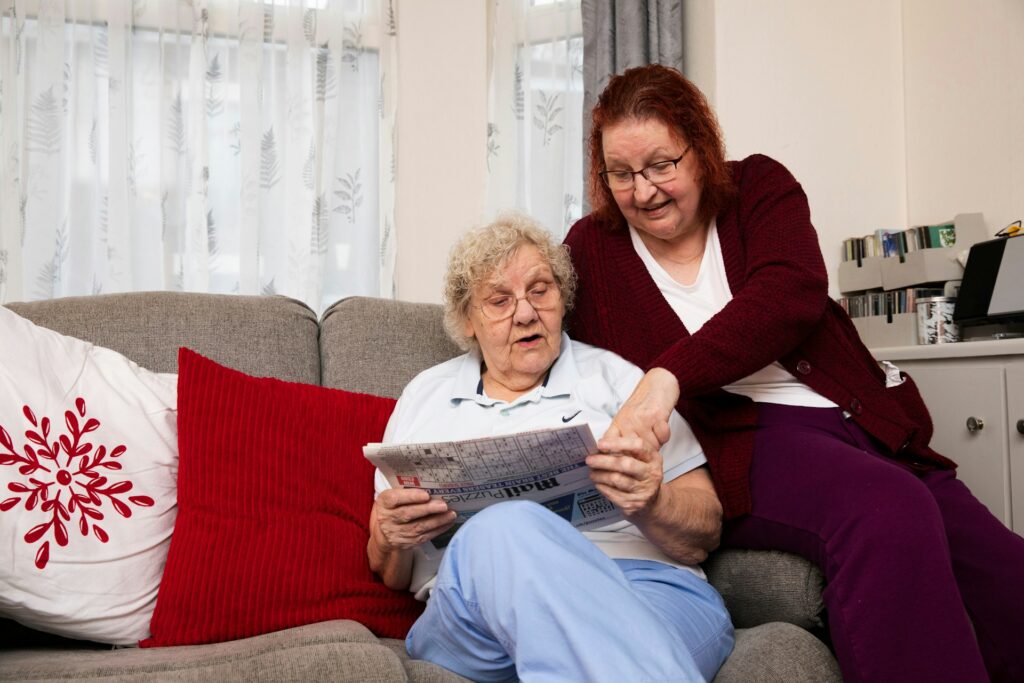
In today’s fast-paced world, the importance of healing in the comfort of one’s own home has become increasingly recognized. People recovering from illness, surgery, or managing chronic conditions often find peace, strength, and dignity in being surrounded by familiar surroundings and loved ones. This has paved the way for home care services that do more than provide medical support—they offer compassionate care that nurtures both the body and soul. This article explores how compassionate support fosters health and healing at home, empowering patients and their families alike.
The Healing Power of Home
For many individuals, home is not just a place; it’s a source of emotional security. When someone is facing health challenges, being in a familiar environment can have a profound impact on their recovery. Scientific studies have shown that patients recovering at home often heal faster and experience less stress than those in institutional settings. The psychological benefits of being home—such as improved mood, better sleep, and reduced anxiety—contribute significantly to physical healing.
Home care nurtures these benefits by blending professional medical support with the emotional comforts of home life. It helps patients maintain their daily routines and independence, which is often vital to their mental and emotional well-being.
The Role of Compassion in Home Care
Compassion is at the heart of effective home care. It goes beyond simply administering medication or monitoring vitals. Compassionate caregivers listen attentively, offer emotional support, and treat patients with the dignity and respect they deserve. These connections, built on trust and empathy, create a therapeutic bond that encourages recovery.
Patients feel more understood and valued when caregivers show genuine concern for their comfort and emotional needs. Whether it’s holding a hand, sharing a moment of laughter, or simply being present, small acts of kindness often have a significant impact on a person’s healing journey.
Tailored Support for Individual Needs
One of the greatest strengths of home care is its personalized approach. Every patient has unique medical conditions, preferences, and emotional requirements. A compassionate home care team takes the time to get to know each patient, ensuring the care plan aligns with their specific situation.
This may include assistance with daily activities like bathing, dressing, or meal preparation, as well as managing medications or coordinating with doctors. By tailoring care to the individual, home caregivers ensure that support is both effective and meaningful.
Supporting Families Through the Journey
When a loved one is ill or recovering, it’s not just the patient who needs support—families do too. Home care services recognize this and extend their compassion to family members who may be juggling work, caregiving responsibilities, and emotional stress.
Caregivers often provide education and guidance that empowers family members to participate in the healing process. This support can alleviate the burden on families and help prevent caregiver burnout. Knowing a professional is there to share the responsibility brings peace of mind and allows families to focus on quality time with their loved ones.
Specialized Care for Complex Conditions
Home care isn’t limited to basic support. Many providers offer specialized services for individuals with complex medical needs such as dementia, Alzheimer’s, stroke recovery, or mobility limitations. Skilled nurses and therapists bring hospital-level care into the home, ensuring continuity of treatment without the discomfort of hospital stays.
This level of care is especially valuable for patients who require ongoing attention but wish to avoid the impersonal nature of long-term care facilities. In regions like Washington, services such as Home care nursing in Bremerton, WA offer a model of this kind of advanced in-home medical support, balancing technical proficiency with heartfelt compassion.
Encouraging Independence and Confidence
One of the key goals of compassionate home care is to empower patients to remain as independent as possible. Loss of independence can be disheartening and frustrating, particularly for seniors or those with long-term disabilities. Supportive caregivers encourage patients to take an active role in their care and daily routines.
This encouragement builds self-esteem and helps patients regain confidence in their abilities. Whether it’s walking with assistance, managing personal hygiene, or preparing simple meals, these victories—no matter how small—can boost morale and enhance the overall quality of life.
Building Trust Through Consistency
Trust is essential in any caregiving relationship. A revolving door of caregivers can make patients feel insecure or reluctant to engage. Compassionate home care providers understand the importance of consistency. Assigning the same caregiver or small team helps build familiarity and a sense of stability.
This continuity allows caregivers to notice subtle changes in a patient’s condition, leading to early interventions if needed. Over time, strong bonds often form between patients and caregivers, transforming what might have started as a service into a deeply trusted relationship.
Technology Meets Compassion
Modern home care services are also leveraging technology to enhance compassionate care. From remote health monitoring devices to apps that help families stay connected with care updates, technology ensures that patients receive timely and efficient support.
But even with these innovations, the human element remains irreplaceable. Technology may help track vitals or manage schedules, but it’s the caregiver’s gentle touch and listening ear that truly make a difference in healing and comfort.
A Bridge Between Hospital and Home
For many, home care serves as a vital bridge between hospitalization and full recovery. After surgery or a serious illness, patients often need ongoing support to manage their recovery safely. Home care provides this support in a way that’s non-disruptive to daily life.
Rehabilitation therapies, wound care, pain management, and medication monitoring can all be administered at home. This not only speeds up recovery but also reduces the risk of readmission by ensuring the patient follows their care plan closely.
Conclusion: A Model of Healing Through Compassion
Healing is not just a medical process—it’s an emotional and spiritual one too. Compassionate support at home helps people navigate this journey with dignity, peace, and comfort. From tailored care plans to emotional support and professional medical attention, home care transforms houses into healing havens.
Whether for the elderly, post-operative patients, or individuals managing chronic illnesses, compassionate care at home offers a powerful combination of safety, support, and solace. In the growing field of home care, embracing compassion isn’t just an option—it’s the foundation of healing.

